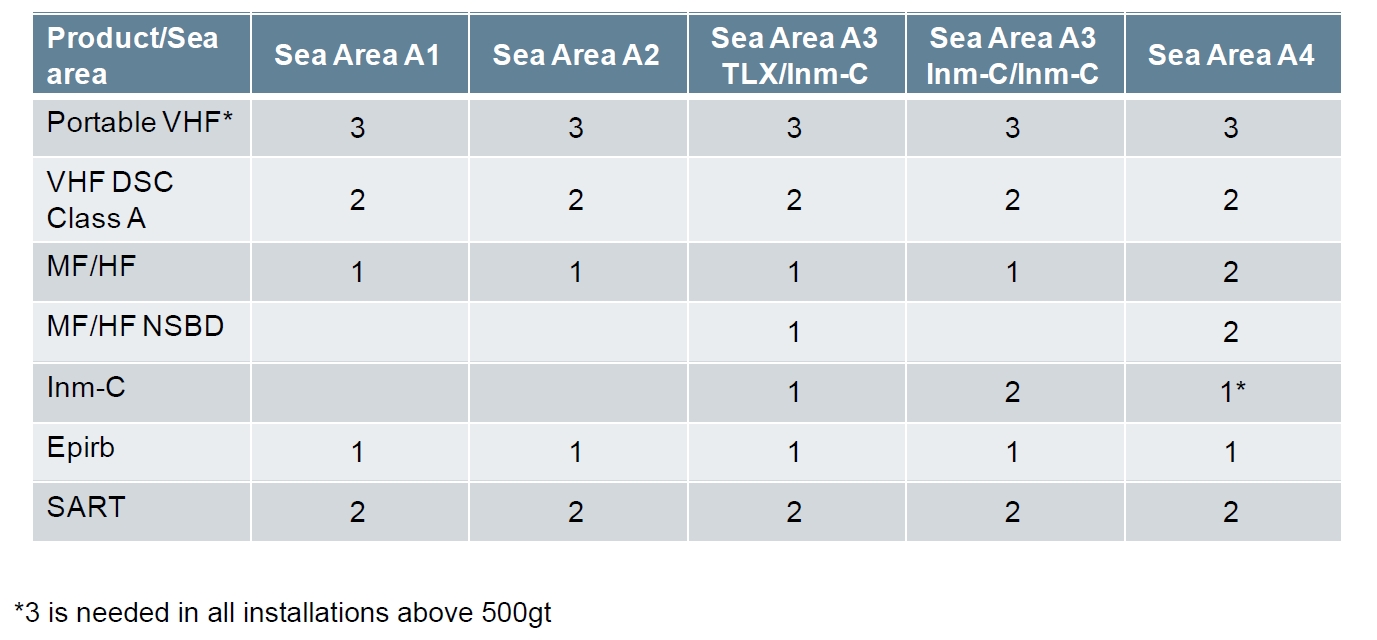 Iridium is asking IMO to certify it to operate GMDSS (again) | Maritime Insight
Iridium is asking IMO to certify it to operate GMDSS (again) | Maritime InsightSatMagazine 2008 Iridium Year in Review
Increasingly, the eyes of the shipping industry are turning toward the Arctic as new sea lanes open in the far north. Iridium welcomes these IMO decisions, which will introduce an element of competition into the marketplace and also make an important contribution to safety at sea by providing GMDSS satellite coverage for the first time to ships operating in Region A4 (Polar Regions above approximately 70 latitude). Only Iridium can provide complete universal coverage over all GMDSS Regions with a single low-cost shipboard terminal to meet both the voice and data requirements of the GMDSS. We are currently moving forward as quickly as possible to achieve full GMDSS compliance and offer GMDSS-compliant ship terminals to the marine market as soon as the International Convention for the Safety of Life at Sea (SOLAS Convention) IV amendments come into force July 1, 2009.
Maritime Journal - Iridium offer
 Iridium takes another run at the IMO phased to coincide with opening of the Arctic to commerce to benefit from Iridium polar coverage (region A4 compared to GEOSAT INMARSAT) with follow on to Iridium Next, and Iridium Prime.
Iridium takes another run at the IMO phased to coincide with opening of the Arctic to commerce to benefit from Iridium polar coverage (region A4 compared to GEOSAT INMARSAT) with follow on to Iridium Next, and Iridium Prime.Iridium IMO GMDSS Application
Summary
- A Lasting Value Proposition For The Maritime Industry
- Operates a fully global satellite network providing maritime communications in all four Sea Areas (A1, A2, A3 & A4)
- Has a long history of providing mission critical and maritime communications
- Iridium is seeking recognition to be part of the GMDSS and will provide a comprehensive application demonstrating compliance with Res A.1001 to the NCSR sub-committee and IMSO for review
- Current constellation is healthy and is fully compliant with GMDSS requirements
- Iridium NEXT will provide continued service beyond 2030 and will be fully compliant with GMDSS requirements without the need to replace approved shipboard equipment
- Iridium PRIME provides an opportunity to enhance or extend maritime communications cost effectively globally
Iridium Communications Inc. IRDM -3.06% today announced it has formally submitted a comprehensive application to the International Maritime Organization (IMO) through the United States for the provision of mobile satellite communications in the Global Maritime Distress and Safety System (GMDSS). If the application is approved, Iridium could begin providing GMDSS services in late 2015.
Today, ship operators are forced to carry multiple communications systems to meet GMDSS requirements as well as the operational communications needs of the vessel. Iridium's entrance into GMDSS communications will be supported by an array of maritime communications systems, giving the industry the option of a single, affordable communications terminal to satisfy both safety and business communications requirements wherever they operate. Iridium is working with recognized maritime communications equipment manufacturers for the production and certification of GMDSS terminals that use the Iridium® network, which are expected to be available before the end of 2015.
Global Maritime Distress and Safety System (GMDSS)
Ship
distress and safety communications entered a new era on 1 February 1999 with
the full implementation of the Global Maritime Distress and Safety System
(GMDSS) - an integrated communications system using satellite and terrestrial
radiocommunications to ensure that no matter where a ship is in distress,
aid can be dispatched.
The
GMDSS was developed by the International Maritime Organization (IMO), the specialized
agency of the United Nations with responsibility for ship safety and the prevention
of marine pollution, in close co-operation with the International Telecommunication
Union (ITU)
and other international organizations, notably the World Meteorological Organization
(WMO), the International
Hydrographic Organization (IHO)
and the COSPAS-SARSAT
partners.
The GMDSS requirements are contained in Chapter IV of SOLAS on Radiocommunications and were adopted in 1988. The requirements entered into force on 1 February 1992 but provided for a phase-in period until 1 February 1999.
Coast Guard: Global Maritime Distress and Safety System
FCC: Wireless Services: Ship Radio Stations: Operations: Global Maritime Distress and Safety System (GMDSS)
What equipment is necessary under the GMDSS rules?
The exact suite of equipment depends upon the intended routes of your ship. A careful review of the new regulations, 47 CFR Section 80.1105, is needed to determine the requirements applicable to each ship in each sailing area. Generally, all GMDSS ships must carry
- a 406 MHz EPIRB,
- a VHF radio capable of transmitting and receiving DSC and radiotelephony,
- a NAVTEX receiver,
- a Search and Rescue Transponder, SART, and
- two-way VHF portable radios.



1 comment:
Thanks for sharing the wonderful blog.
Best International Schools In Coimbatore
Post a Comment